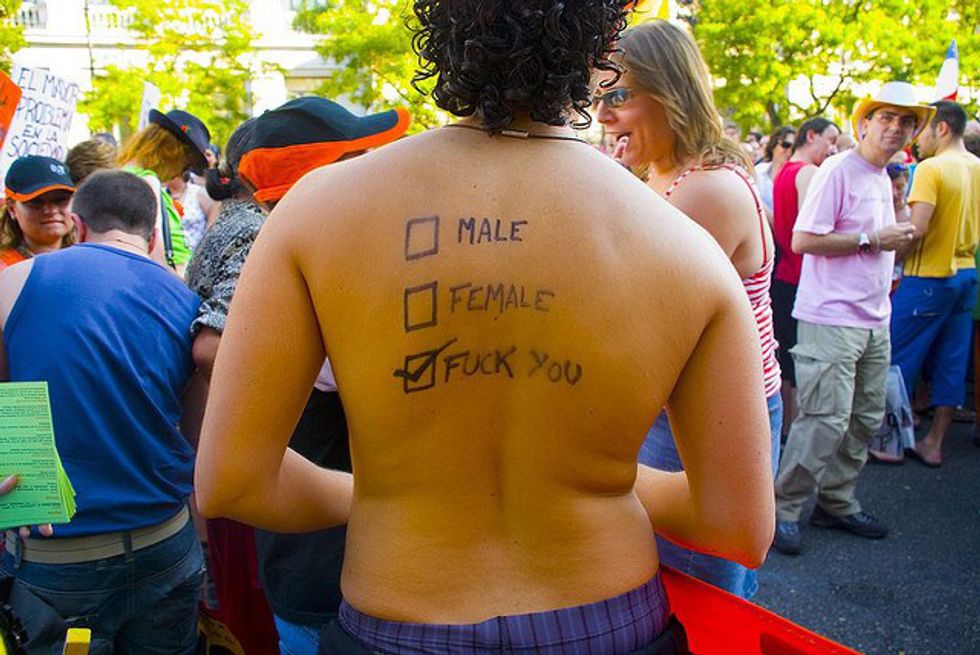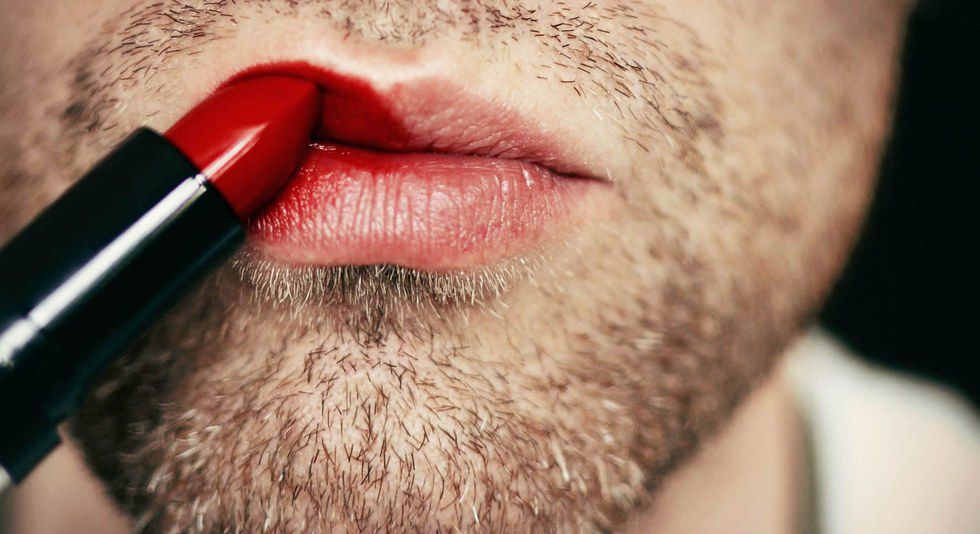Before college, I never considered the importance of pronouns or the fact that some 700,000 people in the United States identify as a gender other than their biological sex (as of 2011). Trans* issues were a part of the LGBTQ+ community that I hadn't spent a lot of time trying to understand; unfortunately, I was one of many who think "I'm not trans*, so it doesn't matter to me." The more time I spent in the LGBTQ+ community, however, the more trans* issues did seem to matter. When it started to strike a more personal note, I began doing more research on the subject of trans* identity.
It wasn't until then that I discovered the word dysphoria, and more specifically, gender dysphoria. Basically, dysphoria is a feeling of sadness, frustration, or distress caused by a person, place, or experience. That means that gender dysphoria is a feeling of sadness, frustration, or distress sparked by the conflict between a person's biological sex and their chosen gender. Feelings of gender dysphoria can become more prominent when reminded of this conflict; for instance, being referred to as "sir" when you identify as female or vice versa.
With short hair and an androgynous style, I'm used to people calling me "sir" or "man" or whatever, and I honestly never think twice about it. There have even been times where I've felt genuinely happy with my ability to pass as the opposite sex in public because some days I don't feel like I fit the female stereotype the way that I should, and being referred to as male makes me feel more normal. Humans have been socialized to believe in the even split between the sexes (and genders) and in my humanness, I still buy into the either/or mindset. But this means that some days, I feel as if I'm floating between male and female with no place to land and everything from what I wear to the sound of my voice irritates me because it doesn't match what or how I'm feeling (or what or how I'm supposed to be feeling, per society's rules).

Now, I understand that every individual who calls me "ma'am" or "miss" on a regular basis is just being polite—it's the Southern way! But even those that call me "sir" (although it upsets me less than being called "ma'am") are still in the wrong because they're assigning me a gender without knowing anything about me. This usually occurs when I'm at a store or restaurant, and as someone who has worked in both industries, I understand the importance of good manners. But how are phrases like "Have a nice day!" or "What can I get for you?" or "How are you?" any less polite when they aren't accompanied by a gendered pronoun or identifier? In my personal experience, they aren't.
I'm sure that by now you're wondering what I personally identify as, but let's set that question aside and focus instead on the use of gender in acts of politeness. I would much rather not be gendered at all than for someone to call me "sir," realize they think they misgendered me, trip over an apology, then call me "ma'am" in an attempt to right their wrong, when it wasn't wrong at all, necessarily. (And that actually happens a lot.) In my opinion, it isn't polite to draw attention to my gender. It's not polite to make my gender the topic of conversation without my consent, and in doing so, increase my feelings of dysphoria. I just don't think that including gender in hospitality is necessary.
I am by no means suggesting that we abandon politeness; instead, I suggest that we ditch the gendered taglines to our Hellos and How-are-yous in an attempt to show our trans* brothers and sisters the respect they deserve and to help them feel more comfortable in their own skin. So, please, the next time you are presented with the opportunity to be polite, take a moment to consider your words carefully, and try to leave gender out of the conversation until you know how an individual prefers to be identified.
(Check out this really rad article for a better understanding of misgendering and the importance of the problem.)

























